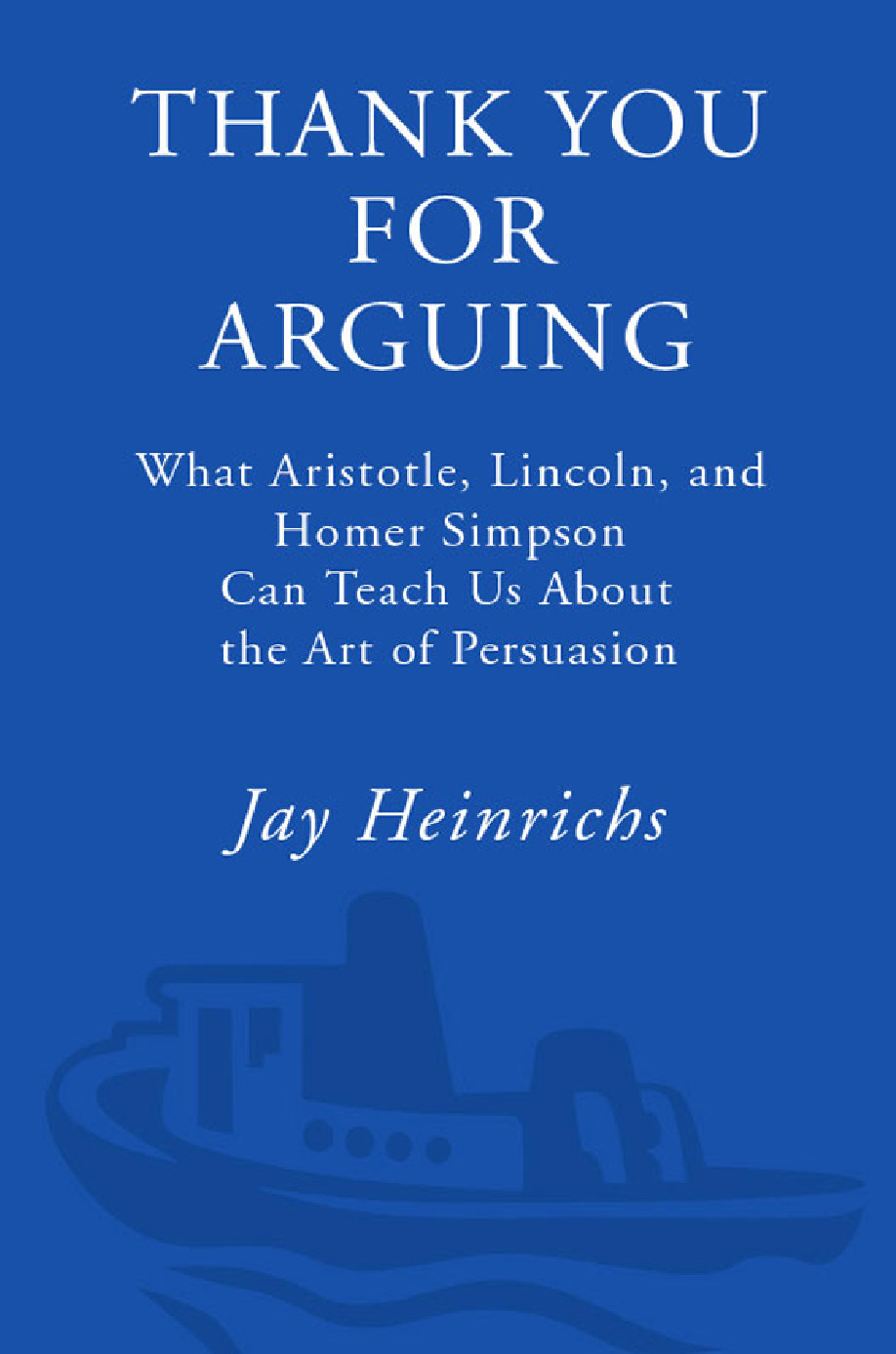
Thank You for Arguing
What Aristotle, Lincoln, and Homer Simpson Can Teach Us About the Art of Persuasion
کتاب های مرتبط
- اطلاعات
- نقد و بررسی
- دیدگاه کاربران
نقد و بررسی

November 20, 2006
Magazine executive Heinrichs is a clever, passionate and erudite advocate for rhetoric, the 3,000-year-old art of persuasion, and his user-friendly primer brims with anecdotes, historical and popular-culture references, sidebars, tips and definitions. Heinrichs describes, in "Control the Tense," Aristotle's favorite type of rhetoric, the deliberative, pragmatic argument that, rather than bogging down on past offenses, promises a future payoff, e.g., a victim of office backstabbing can refocus the issues on future choices: "How is blaming me going to help us get the next contract?" To illustrate "Control the mood," Heinrichs relates Daniel Webster's successful rhetorical flourish in a murder case: he narrated the horrific murder by following Cicero's dictum that when one argue emotionally, one should speak simply and show great self-control. Readers who want to terrify underlings into submission will learn from Heinrichs that speaking softly while letting your eyes betray cold fury does the trick handily. Thomas Jefferson illustrates Heinrichs's dictum "Gain the high ground"; keenly aware of an audience's common beliefs and values, Jefferson used a rhetorical commonplace (all people are created equal) to launch the Declaration of Independence.

























دیدگاه کاربران